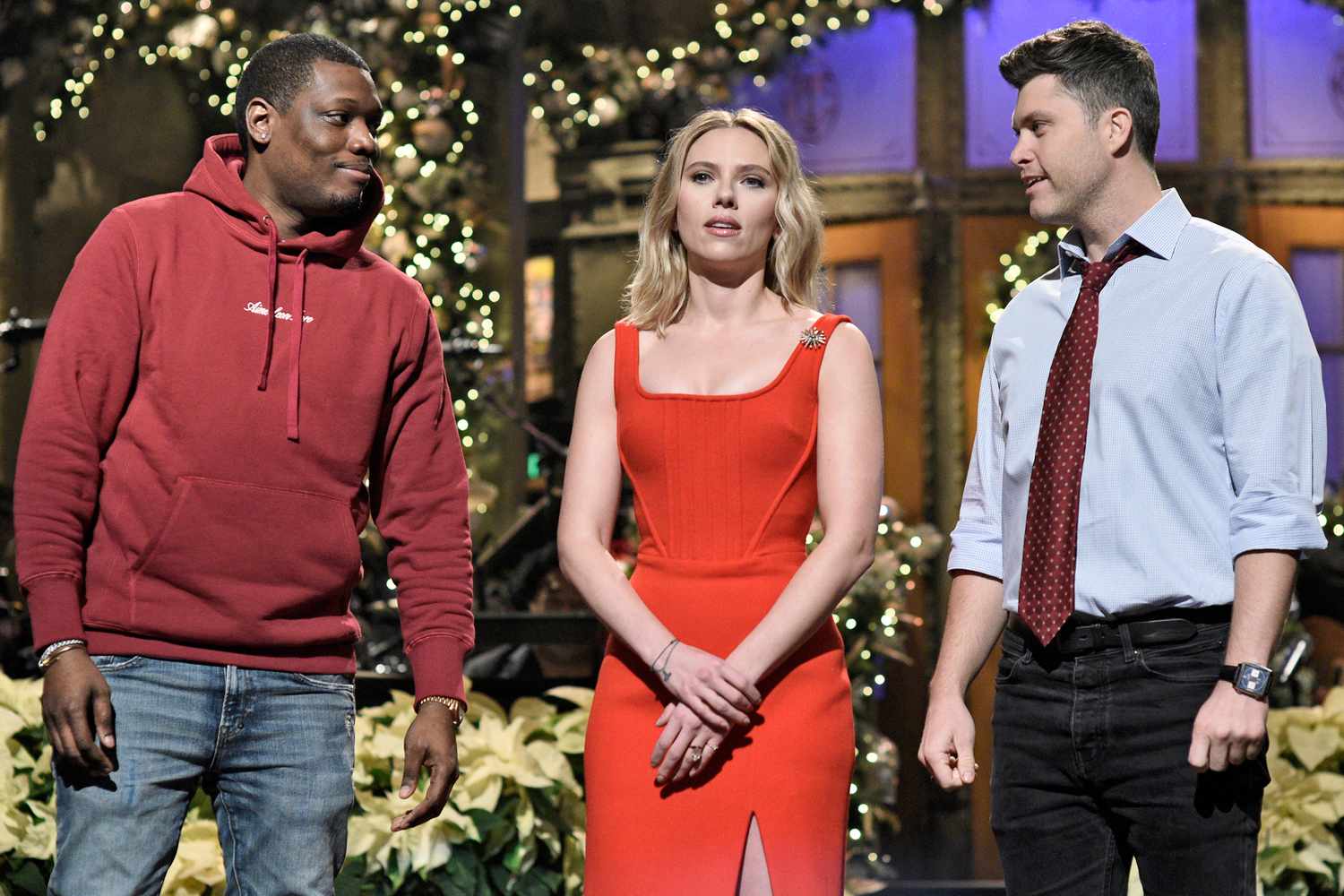SNL Roast Beef Joke Backfires: Scarlett Johansson And Colin Jost's Response

Table of Contents
The Controversial SNL Roast Beef Joke
The SNL roast beef joke, delivered during a sketch, centered around a seemingly innocuous observation about the preparation and consumption of roast beef. However, the humor, while perhaps intended as lighthearted, contained elements that could be easily misinterpreted. The joke's structure and delivery played a significant role in its negative reception.
- The setting of the joke: The joke was part of a wider sketch focusing on [paraphrase the sketch's general theme without revealing the joke].
- The target of the joke: The joke wasn't directed at any specific individual but seemed to touch upon broader societal perceptions of [paraphrase the theme of the joke without revealing specifics].
- The comedic style employed: The joke employed a style of [paraphrase the comedic style, e.g., observational humor with a slightly dark twist].
- Why the joke could be considered offensive or insensitive: The potential for offense stemmed from [explain the reason without revealing the exact wording. For example: "the potential for misinterpreting a casual observation as a belittling remark," or "the use of potentially triggering stereotypes"].
Public Reaction and Social Media Outrage
The public response to the SNL roast beef joke was swift and largely negative, with social media platforms ablaze with criticism. The hashtag #SNLRoastBeefControversy quickly trended, fueling the debate.
- Examples of social media posts: Many users expressed feelings of [paraphrase examples of negative reactions, e.g., "disappointment," "offense," "disbelief"]. Some called for an apology, while others questioned the joke's place within a mainstream comedy show.
- Specific hashtags: Besides #SNLRoastBeefControversy, other related hashtags like #SNLFail and [add other relevant hashtags if any existed] emerged.
- Overall tone and sentiment: The predominant tone on social media was one of outrage and disapproval. Many felt the joke was insensitive and poorly conceived.
- Prominent figures who commented: While many ordinary users voiced their concerns, no major public figures besides Johansson and Jost directly addressed the controversy on social media (to our knowledge).
Scarlett Johansson and Colin Jost's Response
Both Scarlett Johansson and Colin Jost, given their association with SNL (Johansson as a frequent host, Jost as a cast member), addressed the controversy. Their responses, while different in tone, were both carefully crafted to navigate the public backlash.
- Method of response: [Explain how they responded. For example: "Jost addressed the controversy during a post-show interview, while Johansson released a brief statement via her publicist."]
- Key points of their response: [Paraphrase their responses focusing on the key messages. Did they apologize? Offer an explanation? Did they attempt to justify the joke?]
- Overall tone of responses: Jost's response leaned towards [explain the tone, e.g., a defensive explanation], while Johansson's approach seemed more [explain the tone, e.g., apologetic and conciliatory].
- Public reception to their responses: The public reaction to their responses was mixed, with some accepting their explanations and others remaining critical.
Analysis of the Backlash
The backlash against the SNL roast beef joke highlights several key issues within comedy and its reception in the current climate.
- Poorly written joke?: The joke's failure may have stemmed from its lack of subtlety and its potential for misinterpretation.
- Inappropriate timing?: The context in which the joke was told may have contributed to its negative reception.
- Crossing a line of acceptable humor?: The joke may have inadvertently stepped into territory deemed offensive by a large segment of the audience.
- Broader social and political climate: The joke's reception needs to be viewed within the context of evolving social norms and sensitivities.
Conclusion
The SNL roast beef joke controversy serves as a stark reminder of the potential pitfalls of comedy, especially in the age of social media. Scarlett Johansson and Colin Jost's responses highlight the challenges of navigating public opinion and managing the fallout from potentially offensive material. While comedy aims to push boundaries, it’s crucial for comedians and writers to consider the impact their jokes might have. Understanding the nuances of humor and audience sensitivity is critical to avoid future SNL Roast Beef Joke-like incidents. This case emphasizes the need for careful consideration and responsible humor creation. Staying informed about similar controversies can help prevent future missteps in comedy writing and performance. Learn from the SNL roast beef joke incident and strive to create comedy that is both funny and respectful.

Featured Posts
-
 Your Place In The Sun Practical Steps To Buying Property Abroad
May 19, 2025
Your Place In The Sun Practical Steps To Buying Property Abroad
May 19, 2025 -
 Mtabet Mbashrt Lqdas Alqyamt Fy Dyr Sydt Allwyzt Me Alwkalt Alwtnyt Llielam
May 19, 2025
Mtabet Mbashrt Lqdas Alqyamt Fy Dyr Sydt Allwyzt Me Alwkalt Alwtnyt Llielam
May 19, 2025 -
 Uber Pet Services Now Available In Delhi And Mumbai
May 19, 2025
Uber Pet Services Now Available In Delhi And Mumbai
May 19, 2025 -
 Royal Mail First Class Stamp Price Jumps To 1 70
May 19, 2025
Royal Mail First Class Stamp Price Jumps To 1 70
May 19, 2025 -
 Office365 Security Flaw Exposed Hackers Multi Million Dollar Heist
May 19, 2025
Office365 Security Flaw Exposed Hackers Multi Million Dollar Heist
May 19, 2025
